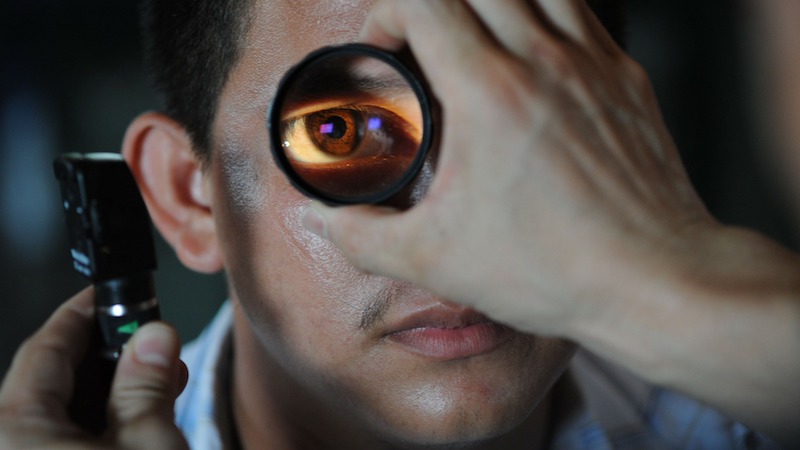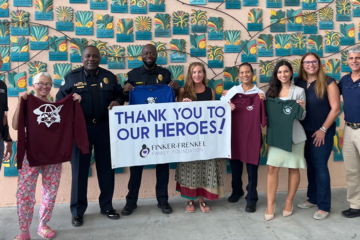New Research into Early Alzheimer’s Diagnoses Funded by the Finker-Frenkel Family Foundation

Ranked the #1 eye hospital in the country, The University of Miami’s Bascom Palmer Eye Institute has been advancing the frontiers of ophthalmology since 1962. One recent area of study out of the Institute is Dr. Delia Cabrera DeBuc’s research into developing retinal biomarkers to diagnose Alzheimer’s disease in its earliest stages. Dr. Cabrera DeBuc’s clinical research study has been funded by the Finker-Frenkel Family Foundation since 2017. We spoke with her about her most recent findings, and what they could mean for patients with Alzheimer’s and their families.
You have been working to find ways to detect Alzheimer’s disease by just using an eye scan. Can you talk a little bit about your latest discoveries in this area?
The eyes are an extension of the brain, it’s all connected! Initially, we were looking for biomarkers in the eyes, specifically in the retina, which correlate to what we know happens with patients who have already been diagnosed with Alzheimer’s. We were able to identify the presence of these markers, and in this latest stage of research, we narrowed down our search area to nine different regions of the eye. When examining the optic nerve head, we found that there was a significant correlation between the cognitive function of the patients, and the parameters we were analyzing in the retina. This is really exciting because it could open the door for future research to help diagnose this disease at earlier and earlier stages.
Why is catching Alzheimer’s early so important?
Well, unfortunately there is no cure for Alzheimer’s yet, but making an early diagnosis can be life-changing for both patients and their families. If you could get an eye scan that predicted you would begin to show symptoms of Alzheimer’s in five years, that would give you five years to prepare for that. Not only could you get your affairs in order, but there is a lot of research that shows that changes in lifestyle can help slow the path of the disease. I’m talking about exercising, eating better, controlling how you sleep. By catching it early, you may be able to delay it. Conditions improve for those that detect it at an earlier stage.
How is Alzheimer’s usually diagnosed? Will your research expand access to early diagnoses?
Usually Alzheimer’s is diagnosed using what is called neuroimaging – that’s the magnetic imaging technology that’s in an MRI. The MRI is used to show a neurologist the structure of the brain, but this is not really an accessible option for many people because it is so expensive. The cost of a single scan can run anywhere from $500 to $1,500 even if you do have insurance.
When we look at the eye, the costs fall dramatically. Our imaging devices don’t even require patients to dilate their eyes. They’re very user friendly, simple and low cost. Your doctor can even take images of the back of the eye using a cellphone, if they have an adapter, which means people won’t have to go to a special doctor for all of this – eventually it can be done in every office.
There is also work being done on a device that patients can use at home – you would put it in front of your eye, take the image and send it to your doctor to examine. Again, this doesn’t exist yet but it is being developed, and anyone will be able to use it.
Why is this research important to you?
Both of my grandmothers suffered from the late onset of Alzheimer’s disease, so genetically, I have the gene for this disease. I may not ever develop it, but I have the gene, which means I am at a high risk for developing it. That’s why we need bio markers! They can give an indication of your risk in the future. The idea is to detect the onset and how the disease may progress with that particular bio marker.
To learn more about Dr. Cabrera DeBuc’s research, including other papers related to AD/cognition research, please visit: https://www.ncbi.nlm.nih.gov/myncbi/1BGAxo3AQH657/bibliography/public/


